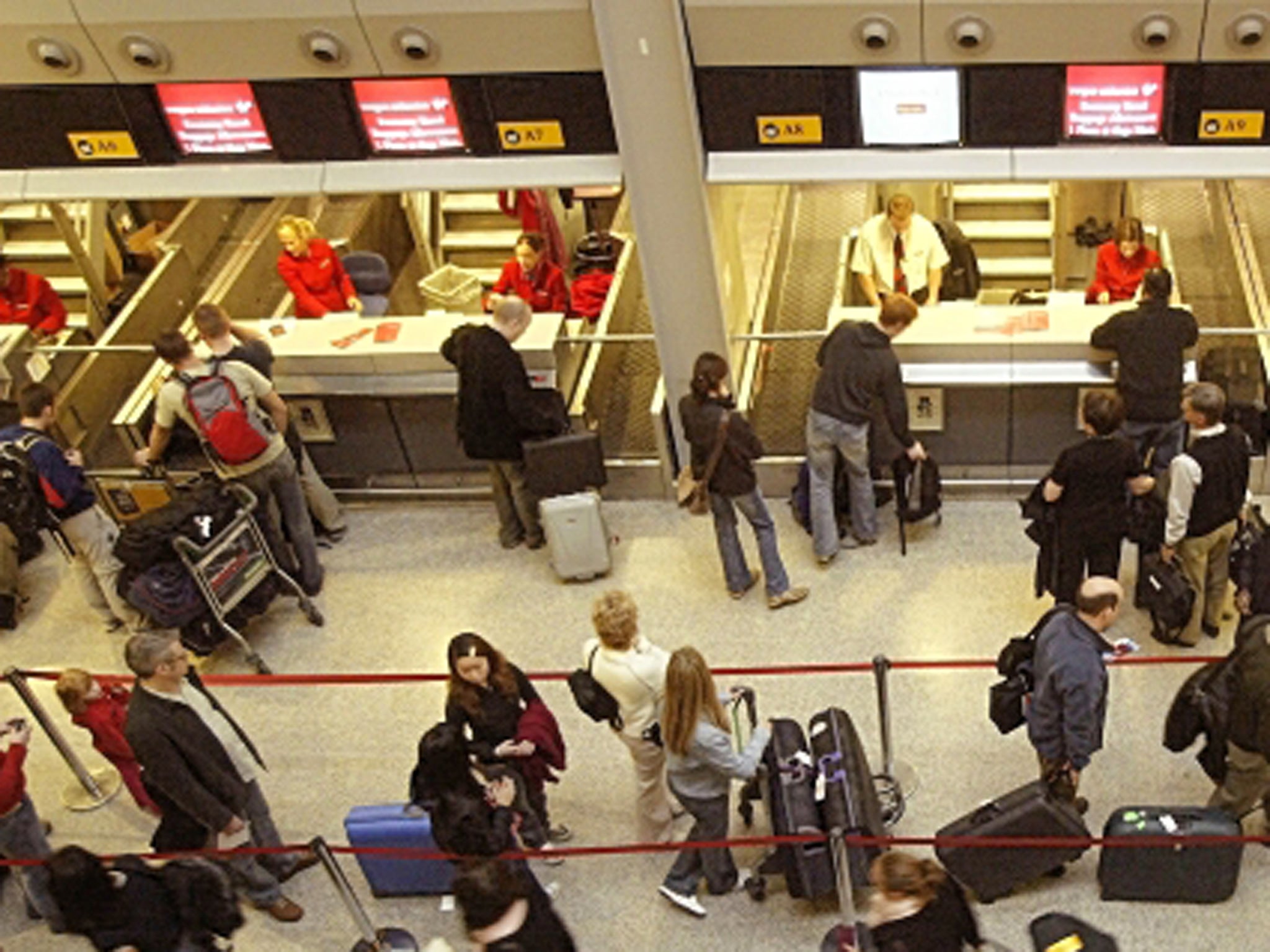Simon Calder: Why airports are unlike theme parks (besides the obvious)
The Man Who Pays His Way

Which large and crucial UK institution is described by its main customer as "Over-priced, over-rewarded and inefficient"? No, not the House of Lords, but Heathrow. Those are the words of Willie Walsh, chief executive of British Airways' parent company, IAG. He controls more than half the slots at Europe's busiest airport.
Heathrow has this week been at the hub of a blazing row. On Tuesday, the Civil Aviation Authority published its proposals for how much Heathrow can charge airlines.
At present, if you buy a £60 short hop to Bilbao on Heathrow's only low-cost airline, Vueling, the airline – and, by extension you, the passenger – must pay a £28.30 fee to the airport (plus a further £13 to that nice George Osborne, in the shape of air passenger duty). Fly British Airways to Agadir in Morocco, and Heathrow's "admission charge" rises to £39.75 – two-fifths of the airline's lowest fare on the route, £101.
For comparison, the passenger charge at Gatwick for any international flight is £12.27.
How, you may well ask, do they arrive at those figures: what explains the lottery of a Las Vegas-bound passenger paying almost £40 at Heathrow, but two-thirds less at Gatwick? The experience at either airport is broadly similar, and each is obliged to provide clean, safe terminals and those cheery security search staff.
The answer lies in the extraordinary way in which charges are calculated. You might imagine that they depend on the cost of providing the service. They do not. Instead, they are arrived at backwards. First, guess what the airport is worth: the "Regulated Asset Base". Then decide on a reasonable rate of return on that investment: the "Maximum Allowable Yield". Divide that with a stab at the number of passengers, and use the result as the basis for charges.
Is there any other industry where prices are based on a notional value of the company, and where the firm can raise its charges simply by buying some new kit for the business?
Agreed, Alton Towers (which some regard as even more fun than Heathrow) has put up its prices this summer by 2.7 per cent partly because of an £18m investment in a brand-new roller coaster, The Smiler, which opens this month. But the public will be the judge of whether it represents value for money – with nearby Drayton Manor, which costs significantly less, ready to welcome budget-conscious fun-seekers.
Why doesn't the theme-park analogy work in the context of Heathrow vs Gatwick? Because without regulation, Heathrow would cost even more because there is so much unsatisfied demand to fly in and out. London is the world centre of aviation, and almost all Heathrow's slots are taken. Allow the market free rein, and the passenger charge would rocket.
So the Civil Aviation Authority is given the job of keeping a lid on the airport's fees. But Mr Walsh of IAG is unimpressed with the authority's work. Over the past decade, he says, the CAA has rewarded Heathrow for inefficiency:
"Its charges have tripled in the last 11 years with inflation-busting increases year on year."
Surely Mr Walsh must be thrilled, then, with rises capped at inflation minus 1.3 per cent. No: "It is now the most expensive hub airport in the world. These proposals, which will result in an increase in prices, fail to address this situation."
BA's exasperation is matched by that of Heathrow itself, which had demanded above-inflation price rises in each of the next five years.
An airport statement said that £11bn has been invested over the past decade, and that a real-terms cut "will put passenger service at risk by not attracting the necessary investment in Heathrow for the short, medium and long term". It added: "Everyone interested in the health of our country's transportation infrastructure must consider whether this is a risk worth taking."
With both parties equally furious, has the CAA got it right? The chief executive, Andrew Haines, believes so: "The proposals ... ensure passengers are protected when they travel, and allow for continuing improvements in service."
Meanwhile, the thrill boffins at Alton Towers are busily analysing the effect of the new ride on body and mind, and mapping "dramatic fluctuations in a range of emotions experienced". Surely they should be sent next to Heathrow.
Life on the margins
Mayday: not a word you want to hear in aviation circles, but the publication on 1 May of the London Assembly Transport Committee's report on airport capacity will have cheered many of the voters in the marginal constituencies in south-west London, who effectively decide UK aviation policy. The committee's chair, Caroline Pidgeon, says expansion of Heathrow should be ruled out: "Too many Londoners already suffer from noise and air pollution from this airport."
The bookmaker Paddy Power concurs, offering odds of 3-1 against a third runway by 2025.
Canary going cheap?
Despite the dismay at British Airways about Heathrow, the airline is still adding new routes. The latest, though, is a surprise: not some fast-growing city in Brazil, Russia, India or China, but a corner of the Canaries that is forever England football shirt territory. Las Palmas on Gran Canaria will be connected with Heathrow from 26 October. But BA's lowest winter fare, £198 return, is more than twice easyJet's cheapest deal from Gatwick. In travel, it pays to have a choice.
Subscribe to Independent Premium to bookmark this article
Want to bookmark your favourite articles and stories to read or reference later? Start your Independent Premium subscription today.

Join our commenting forum
Join thought-provoking conversations, follow other Independent readers and see their replies